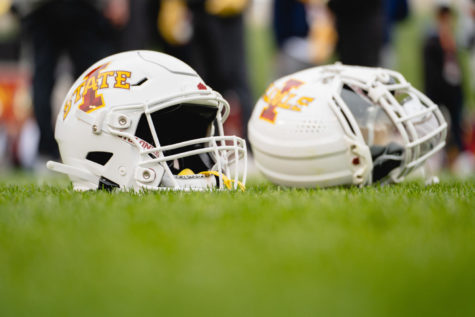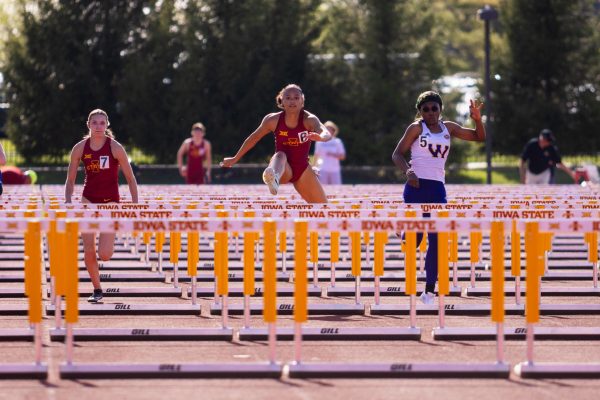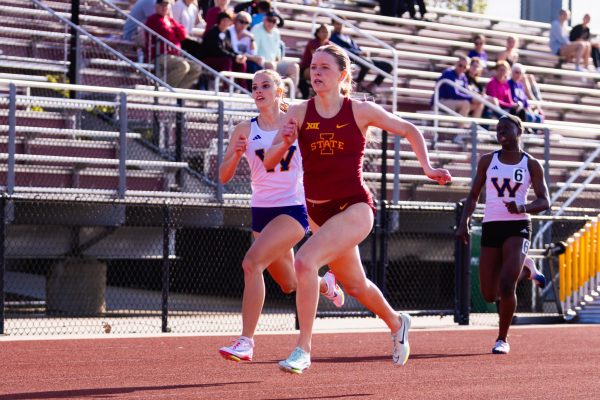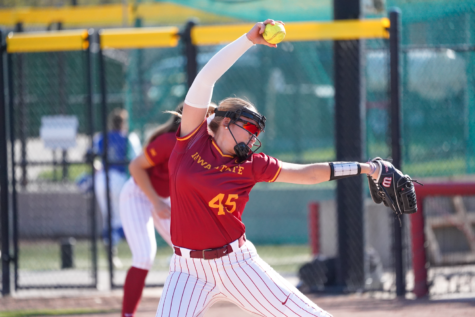Coaching by example
April 20, 2005
ISU men’s golf coach Jay Horton has seen — and done — a lot throughout his career in golf. Now he’s trying to pass his knowledge on to his players.
Horton, head men’s golf coach at Iowa State since 2000, has had a wealth of experience over the years, playing golf in college and professionally. A 1991 graduate of the University of Alabama at Birmingham, Horton was named to the Sun Belt Conference All-Conference Team twice, as a sophomore and as a senior.
“Every kid wanted to go south and play; that was kind of the thing then,” said Horton, who is from Ames. “I was almost going to be here at Iowa State with my friends, but there were some Iowa kids down there and that’s how the connection was made.”
As a senior, Horton took medalist honors at the Sun Belt Conference Tournament, a championship Horton said he cherishes.
“Winning conference was a treat,” Horton said. “I was hoping to get back there last year with Jeremy Lyons because it was at the Homestead, which was where I won.
“It’s something I always remember and will carry with me for a long time.”
Horton’s success didn’t stop after college. Once he left UAB, Horton returned to Iowa and found a job at a golf course.
“I always knew I wanted to be a golf professional,” he said. “I always saw myself being a head professional at a country club somewhere.”
Horton took an assistant pro job at the Crow Valley Golf Club in Bettendorf before taking a shot at playing professionally.
As an assistant pro, Horton had the opportunity to try to qualify for the 1992 Hardee’s Classic, which became the John Deere Classic in 1999.
“I just showed up at the Monday qualifier on a public golf course and spent $200,” Horton said. “I didn’t have any idea what I was doing.”
At first things went well — Horton hit birdies on nine of his first 10 holes. When his group arrived at hole 14, however, a lightning bolt came down and the skies turned black. After telling his group there’s no way he would quit, they continued on and played the next three holes in a downpour. Horton finished with a 65, good enough to qualify for the tournament.
“I took my card back and said, ‘Here,'” Horton said. “I just gave it to them because I had no idea if they’d make everyone start over if the whole group didn’t finish or what.”
Horton took that experience and decided to take a shot at every golfer’s dream — playing professionally.
“You’re playing against the best of the best in a PGA event,” Horton said. “The first year I qualified, I’m standing on the range next to Mark Calcavecchia hitting balls. There’s all these guys I watch on TV, and here I’m one of them.
“Playing in a PGA event is the most amazing experience in the world, and hopefully some of my guys will have that experience.”
Horton qualified for the same tournament again in 1998; however, he missed the cut both times he qualified.
After a year of trying to make it as a playing professional, Horton said he decided it wasn’t working and resumed trying to find work as a club professional, and that is when Iowa State came calling.
Horton took an assistant coaching job in May 1999, and within three months was promoted to interim head coach. He became the head men’s golf coach in 2000.
ISU freshman golfer Chris Baker said he believes Horton’s experiences will be a great help to him throughout his career at Iowa State.
“He knows what situations are like and he can help us with our game,” Baker said. “He’s been in our position and can help us out.”
Junior teammate Drew Dalziel said he agreed with Baker’s assessment.
“He obviously knows what it takes to play at that level,” Dalziel said. “He’s played with guys who are at that level, and anytime you can be around someone like that, it’s a plus.”
Although Horton is still able to qualify for events, he said playing is secondary to him now.
“My focus is on the team now,” he said. “I like to play in tournaments and against [my players], and I like to win. I don’t roll over for them, but I like it when they can beat me.”
Horton said he still cherishes his playing days, but his focus is on passing that experience on to his players.
“[Coaching] is what I want to do now. I basically compete through them,” he said. “I see the ups and downs, and I can relate to what they’re doing and help them out.”
















